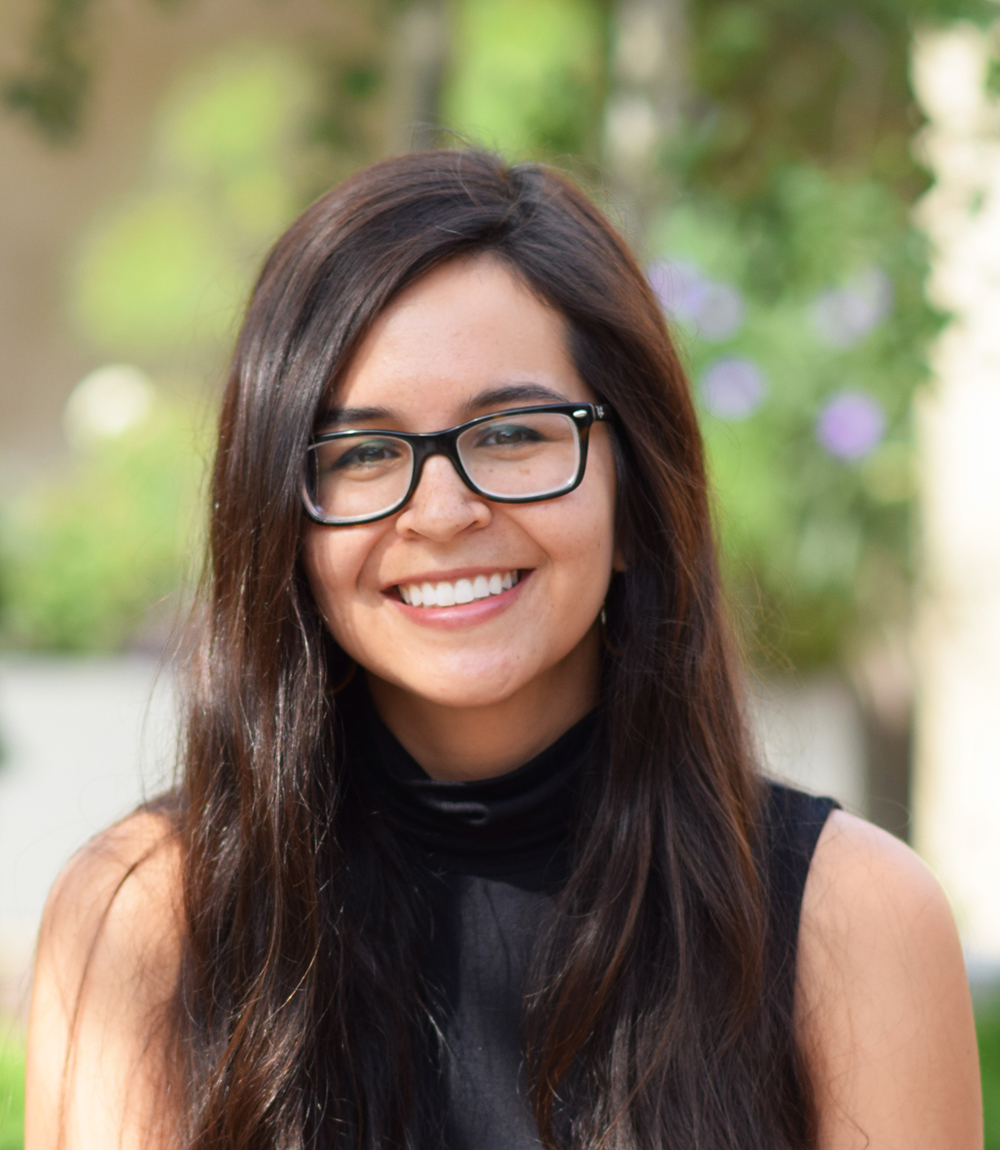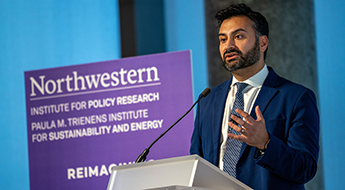From Teaching to Policy-Relevant Research
IPR postdoctoral fellow Lauren Tighe discusses her journey from teacher to researcher on two-generation initiatives
Get all our news
This was an opportunity for me to work with leaders in the field and gain much more understanding of policy and programs, way more so than I've ever gotten in graduate school. ”
Lauren Tighe
IPR postdoctoral fellow

It was a dorm that led IPR postdoctoral fellow Lauren Tighe to a career in academic research.
During her first year at the University of Michigan, she shared how becoming part of a research community gave students access to a coveted dorm, centrally located on campus.
“I decided I'm just going to do this [research] because I want to live in this dorm,” she said. “And then it turned out to be a really great experience.”
Tighe went on to work as a research assistant for all four years of her undergraduate program, eventually getting her PhD from Michigan in Social Work and Developmental Psychology in 2019. She started her postdoctoral fellowship with Northwestern’s Two-Generation Research Initiative (NU2Gen) later that year.
IPR sat down with her to discuss how experiences with research and as a teacher inform her work as a postdoctoral fellow. Tighe, who works with NU2Gen’s directors faculty emerita Lindsay Chase-Lansdale and IPR research professor Teresa Eckrich Sommer, also shared some of its latest findings.
This interview has been edited for length and clarity.
What kind of research were you doing at the University of Michigan before you came to IPR?
I was doing a lot of research with families, but it was mostly older parents and their adult children, rather than the research I do now, which focuses on younger parents and younger children.
After I graduated from Michigan [undergraduate in 2011], I was a high school math teacher in Detroit. And that led me to really understand how important parenting is, how important parents’ education is, and family income for students’ success and wellbeing. So that's what led me to go back to graduate school. I'm still interested in the family, just different dynamics in the family.
Can you talk about how working as a teacher informed your research?
If you're studying things like education or student achievement, to have been in those spaces to some degree on the other end [is helpful]. As researchers we do research, and then we have recommendations for teachers and policymakers, but if you've never been on the other side of it, it's very easy to say those things. But actually implementing them and being familiar with those systems is very difficult.
My experiences as a teacher really broadened my worldview. I was in a completely different context than the one I had grown up with, so I saw how important family is, no matter what situation you're in. I saw the strength of families. And that all led me to think, “How can we incorporate family more into education?”
How did you end up at the Institute for Policy Research and why did you want to work on policy-relevant research?
My dissertation was about low-income families that are college educated and the important role of parent education even in dire economic circumstances. I did this whole study, and at the very end was like, “What do we do with this?”
That's when I came across two-generation programs and the movement basically spearheaded by Lindsay Chase-Landsdale, Jeanne Brooks-Gunn, Teresa Sommer, and other folks who were saying, “Yes, we need to help parents achieve higher education so they can get a better job, more financial stability, but you have to do it with a cohesive number of supports. Education isn't just the answer. Income isn't just the answer. You have to combine the two and support families holistically.”
I had cited work from the NU2Gen lab in a rough draft of my dissertation in December [2018], and then in January [2019], I saw the job posting to work with them at IPR. It was really cool for me to say, I have cited you, and I see my work being reflected in your theories and the directions you're taking the programs. And this was an opportunity for me to work with leaders in the field and gain much more understanding of policy and programs, way more so than I've ever gotten in graduate school.
What are some of your latest findings about the HOPE Toledo Promise program?
The HOPE Toledo Promise program was funded by a philanthropist who was originally from Toledo, Ohio. He came back to his community, and he said, “I want to go to the public high school that is the most under-resourced, and I want to offer graduates essentially a full scholarship to anywhere in Ohio, along with some supportive services. And if they go, then their parent can also go to college at the same time.” The parent doesn't have to go to the same school, but just a postsecondary institution within the state of Ohio.
This was something that we've been researching for the past two years. We did its first implementation study last year, which unfortunately was during COVID. A lot of the students were reflecting on their experiences and [mentioned] how hard it is to go to college when you haven't had that college-going narrative for your whole life, and then you're in a pandemic. It's so hard to make friends, you're not going to classes, and you're not joining clubs, so the social aspect was really difficult.
For that first cohort, they were persisting [in college], against all odds, and they were doing well academically. On the psychological side, though, we see that they do have pretty high levels of psychological distress. They're feeling lonely.
By the second cohort, we do see some differences. For the most part, schools had opened up last year. Students weren't feeling as lonely. They were able to get more of a normal college experience. And they were enrolling [in college] at pretty high rates and persisting at rates that are comparable to other college programs.
Those are just the young adults. We also have their parents. Even though parents could go to school at the same time as their child, many parents did not take up the offer. But the parents who are in the program and in college are persisting at very high levels.
Our first graduate of the program was a mother, who graduated from a local community college with a certificate in counseling addiction. The people who are taking up the program, they're facing a lot of challenges, but they're also really building on their strengths.
Lauren Tighe is an IPR postdoctoral fellow with Northwestern’s Two-Generation Research Initiative. She works with Lindsay Chase-Lansdale, professor emerita of Human Development and Social Policy and former IPR fellow, and Teresa Eckrich Sommer, research professor and IPR associate.
Photo credit: C. Gall
Published: January 10, 2023.


